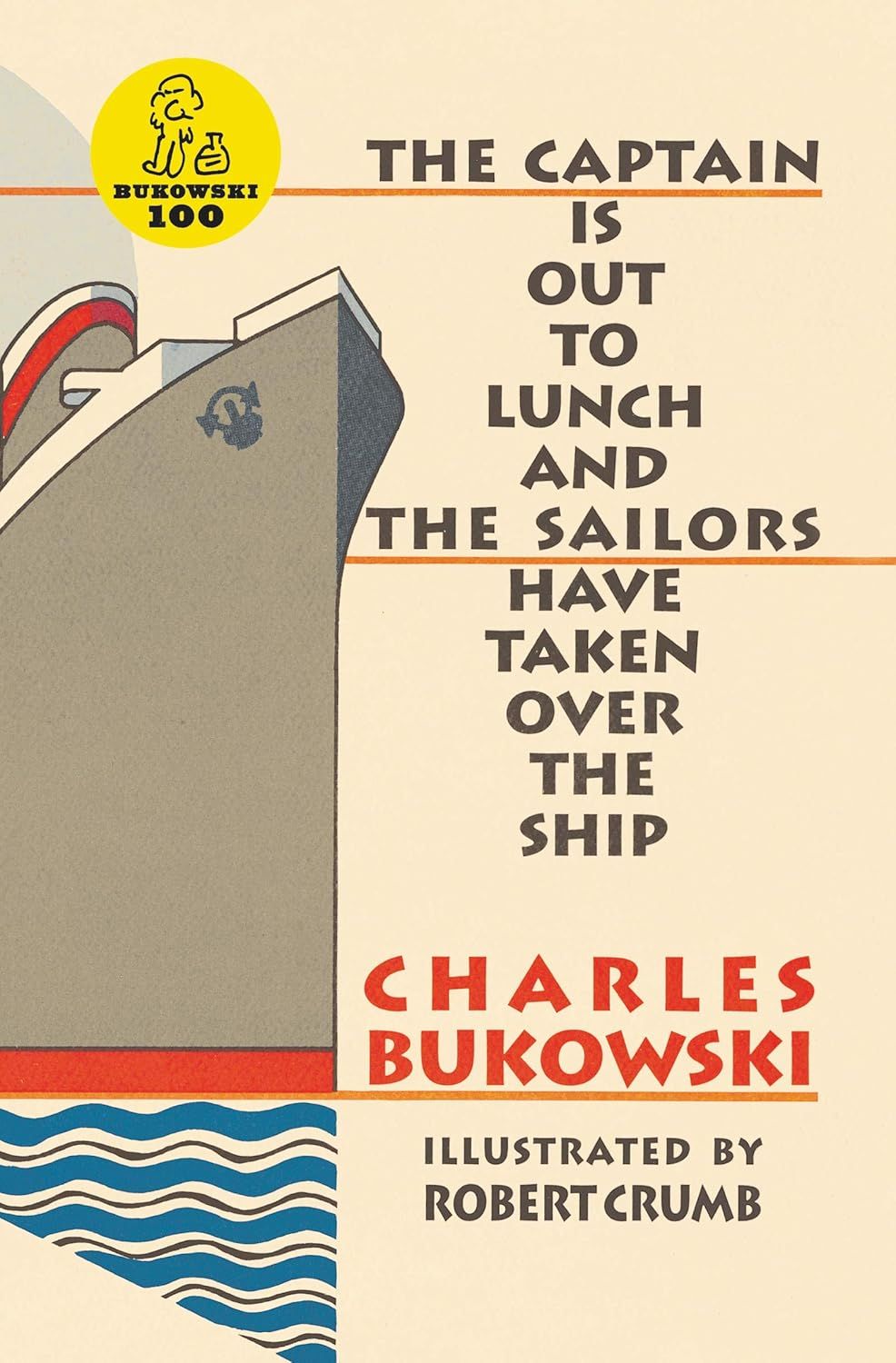Synopsis
The Captain Is Out to Lunch and the Sailors Have Taken Over the Ship by Charles Bukowski is a collection of raw, reflective journal entries written during the final years of the author’s life. The entries offer an intimate look into Bukowski’s thoughts as he navigates old age, fame, and the routines of daily life.
Through his trademark no-nonsense style, Bukowski writes about his passion for horse racing, his frustrations with humanity, the absurdities of fame, and the relentless march of time. He balances cynicism with moments of vulnerability and dark humour, reflecting on mortality and his waning energy while continuing to observe life with an unflinching eye.
Illustrated with evocative artwork by Robert Crumb, the book is a snapshot of Bukowski’s world—a mix of grit, wit, and surprising tenderness. It’s a contemplative yet unfiltered reflection on aging, creativity, and the absurdity of existence.
My Notes
I really enjoyed this. I’m not sure if Bukowski ever intended it to be read, but the way it’s written makes me think maybe he did.
Either way, it’s become one of my favourites of his. You get an up-close look at his thoughts in his old age, which is my favourite version of Bukowski.
It’s fascinating to see the routine of his days: going to the racetrack, thinking about his cats, and always circling back to writing.
His evenings spent writing with classical music playing in the background… Pura bohemia.
He writes a lot about his anxiety over death and his disgust with people and their “un-aliveness.” He yearns for real, creative, and original people. It’s not that he’s antisocial, he just doesn’t like the people he comes across — egocentric people with no spark.
Classic Bukowski, frustrated with mediocrity — another clear sign that he wasn’t the pessimist people paint him to be. He longed for remarkable people.
Some of my favourite parts are when he writes about finding a book title, his thoughts on other writers and how he imagines them, his belief that he’s writing more and better than ever in his final years, and his love for the Macintosh computer — he’s refreshingly unfazed by the romanticism of the typewriter.
I’ve already read this book twice. I wish it was longer!
